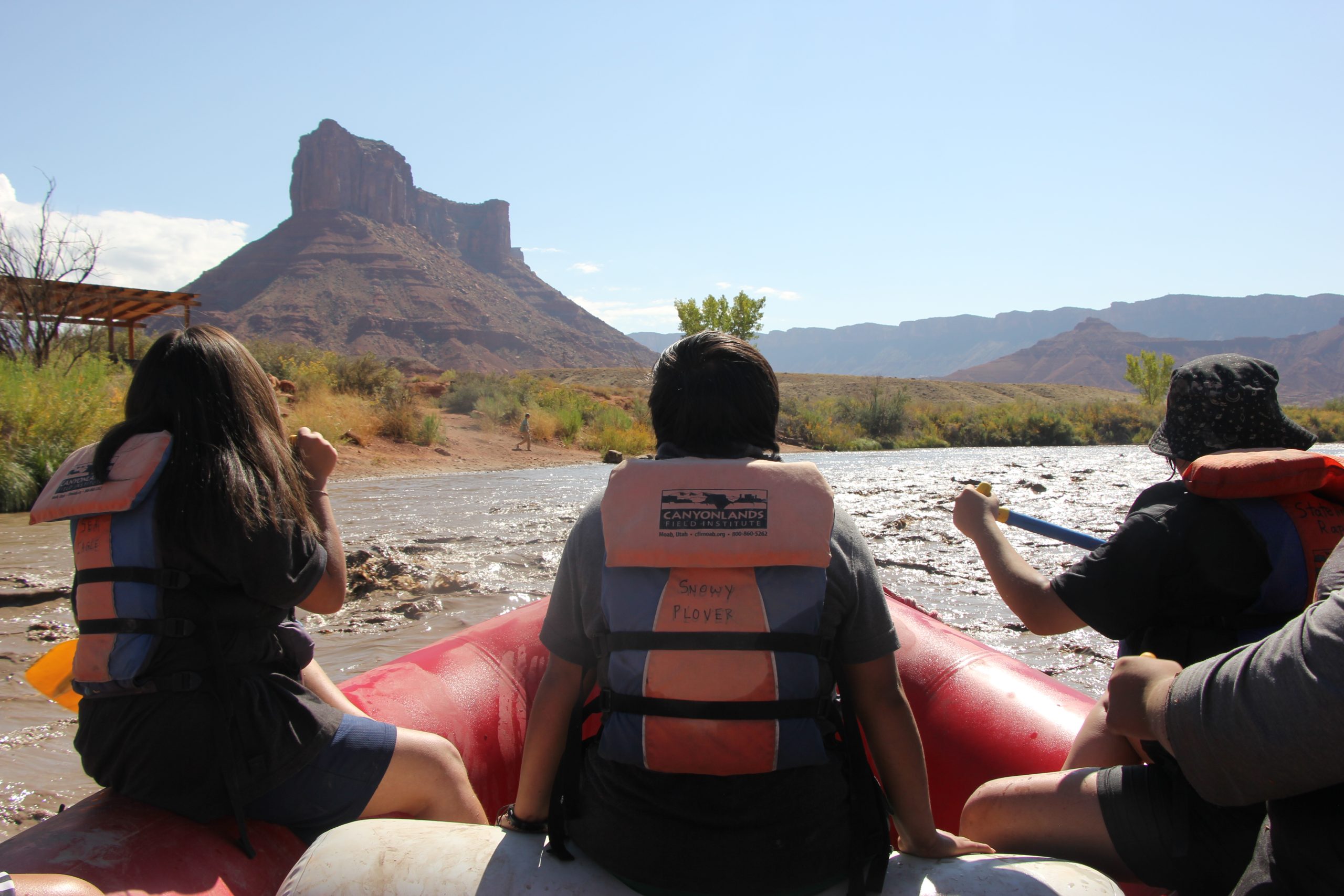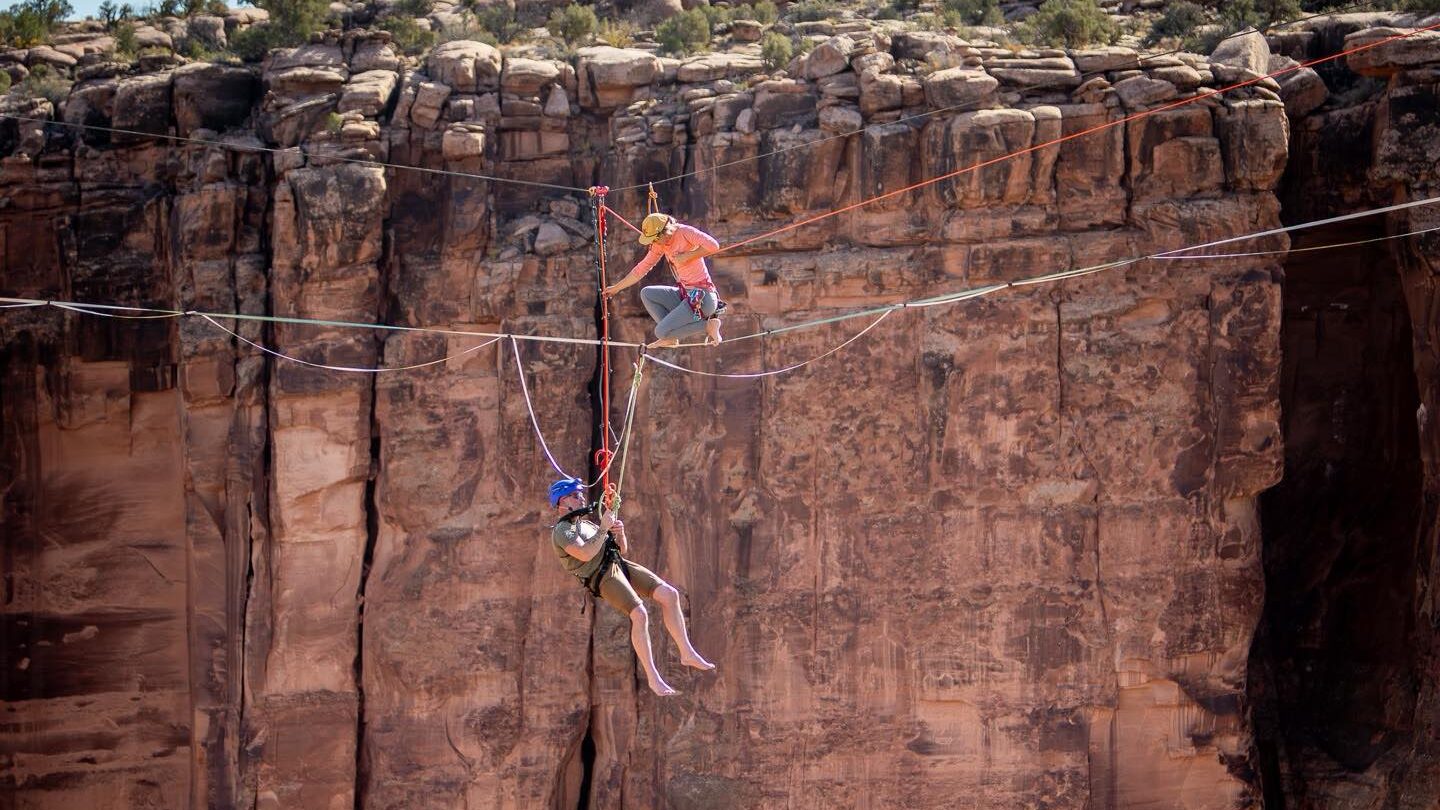Some information may be outdated.
Brennan Gillis is the marketing and communications director at Canyonlands Field Institute, a local organization that leads outdoor education trips for students and adults. But the 2021 season—from April to October—was so busy that most of his days were spent pulled away from his desk, navigating the whitewater rapids of the Colorado, Green, and San Juan rivers.
CFI’s busy season follows a national trend toward expanding outdoor education. Outdoor learning has been around for a while—forest schools have been popular in California for decades—but the popularity of outdoor schooling has exploded since 2020 after experts said that COVID-19 spreads less easily outdoors. In October 2020, the Salt Lake Tribune reported on a handful of schools around Utah that prioritized moving their classrooms outside while the weather allowed for it; since then, “outdoor learning” has become a buzzword.
CFI has been expanding its school programs since 2019, developing a progressional program for local middle school students: sixth-grade students attended a field camp program at Professor Valley Field Camp, seventh-graders attended a river trip, and eighth-graders attended and designed a service project. The idea is to create an emotional connection between students and the landscape they grew up on, and to give them an opportunity to contribute to their community.
“One of the main changes that we’ve undergone has been in our curriculum,” Gillis said. The school program curriculum is shifting away from what Gillis calls “trivia-based science education,” in which educators point out certain types of trees or plants, to more of an emphasis on creating student-centered emotional connections with nature.
“It all starts with creating this emotional connection,” he said.
CFI serves students outside of Utah, too—Gillis estimates about 50% of their students come from the Colorado Plateau, and the other 50% come from everywhere else in the country, including Idaho and Montana.
Jory Macomber started as the executive director in December, following in the footsteps of founder Karla VanderZanden. In the 2020 season, he said, the organization only ran a few private trips. The Paycheck Protection Program, a federal program that helped businesses keep their workforce employed during COVID-19, “essentially carried us through the year,” Macomber said. “It was critical.”
In addition to having a season packed with school trips, CFI also introduced a new adult seminar this year, “Ancient People of the La Sal Borderlands.” The seminar focused on archaeology, and was like a “grab bag” of different programs, Gillis said. Program participants spent time at the Professor Valley Field Camp, then traveled south toward Indian Creek, all while learning from experts about the archaeological and cultural histories of each area. The adult “adventure seminars” that CFI runs help fund school trips—this season, they had adult programs such as the women-only river trip, “Women, Wisened by Nature”; and “Rainbow Bridge Trail Supported Trek,” in which participants explore Navajo culture and history on a llama supported backpacking trip near Paige, Arizona.
“We want to connect people to the Colorado Plateau and to each other,” Macomber said. “That’s our educational pedagogy—we teach connection.”
CFI was recently accepted to a program called “Working Toward Racial Equity,” run by Justice Outside and by the University of California Berkeley’s Lawrence Hall of Science. CFI is part of a cohort of 10 organizations. The program will run for two years and starts with a five-month series of intensive workshops.
The program will help CFI look at their policies and practices to increase racial equity in their organization and in outdoor education as a whole. Historically, outdoor spaces are dominated by white people: a study done in 2020 by the Outdoor Foundation found that in 2019, white people made up 60.9% of the U.S. population, but 71.5% of outdoor participants. The outdoor industry, too, lacks diversity—in 2020, 79% of full-time permanent employees for the National Park Service were white.
“[The program] has already affected how we advertise and hire, and it’s definitely going to get into what we teach, and how we teach it,” Macomber said.
Looking forward to next year, Gillis and Macomber both are excited to continue the growth they saw this year. In 2019, CFI bought a 160-acre ranch in Castle Valley, which will eventually become a residential program that can host people during the winter, Macomber said. He also wants to partner with more local organizations around Moab.
“I don’t want to be an organization that takes natural resources and says ‘alright, everyone around the country, come experience this,’ without providing the same opportunity for the kids that live here,” Gillis said. “Some of the kids here haven’t gotten a chance to experience this area. CFI is in a position to change that. So that’s where I hope to see us grow.”
Appreciate the coverage? Help keep local news alive.
Chip in to support the Moab Sun News.





